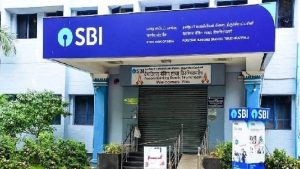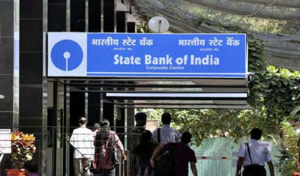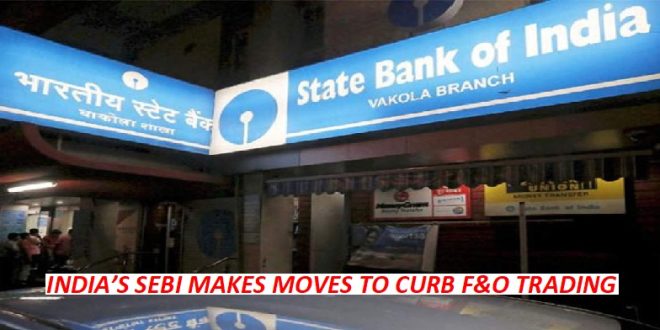04-08-2024
Bureau Report + Agencies
NEW DELHI/ MUMBAI: Strong loan demand helped State Bank of India (SBI.NS), opens new tab, the country’s largest lender, beat estimates with $2 billion in April-June profits but it also witnessed its provisions for loan losses rise sharply.
The state-run bank reported on Saturday its net profit rose around 1% for the first financial quarter to 170.35 billion rupees ($2.03 billion) from 168.84 billion rupees for the same period last year.
 That was above analysts’ forecasts averaging 167.17 billion rupees, according to LSEG estimates.
That was above analysts’ forecasts averaging 167.17 billion rupees, according to LSEG estimates.
SBI’s loans grew 15.39%, led by strong demand for retail loans, while deposits grew 8.18% but loan loss provisions, or funds set aside for potential bad loans, jumped 70% on-year to 45.18 billion rupees.
Growth in SBI’s loan book, given its massive size, is seen as an indicator of broader economic trends in the country. Indian banks have reported strong loan growth over the past few quarters, boosted by consumer spending amid firm economic growth.
Net interest income, the difference between interest earned and paid, grew 5.7%. Net interest margins shrank 12 basis points on-year and on-quarter to 3.35%.
Indian lenders have been grappling to garner deposits to fund loan growth, which has raised cost of deposits and hurt margins.
SBI’s asset quality improved, with its gross non-performing asset ratio declining to 2.21% at the end of June from 2.24% at the end of the previous quarter.
Meanwhile, India’s markets regulator wants to curb the “expiry day frenzy” in options trading, a top official said on Friday, explaining the intent behind its recent proposals to tighten derivative trading rules.
The proposals put out earlier this week range from a reduction in the number contracts expiring each week to higher minimum trading amounts.
 A majority of these are aimed at curbing speculative trading activity that builds up close to the expiry of an options contract, Ananth Narayan, whole-time member at the Securities and Exchange Board of India (SEBI) said at an industry conference in Mumbai.
A majority of these are aimed at curbing speculative trading activity that builds up close to the expiry of an options contract, Ananth Narayan, whole-time member at the Securities and Exchange Board of India (SEBI) said at an industry conference in Mumbai.
As expiry of an option contract nears, a speculator can buy option structures with a very small amount of capital in the hope of a large profit even if the index were to move only by a few points.
Trading in index options specifically close to expiry starts to “resemble a slot machine in a casino”, Narayan said.
Citing data from the country’s largest exchange, National Stock Exchange of India, Narayan said that 9.2 million investors collectively lost 519 billion rupees ($6.20 billion) while trading in derivatives in the financial year ending March 31, 2024.
99% of these individuals traded in index options, while just 7% traded in futures.
“This frenzied hyperactivity in index options on expiry day has little discernable benefits,” said Narayan, adding that it also raised questions of market stability and possible vulnerability to manipulation.
India’s markets regulator on Tuesday proposed a series of measures to curb a trading frenzy in options, including raising the minimum trading amount by over three times, reducing the number of contracts expiring each week and hiking trading margins. The steps, which follow an increase in tax on derivative transactions last week, are intended to curb the participation of retail investors in the options market and will have a significant impact on volumes, traders said.
Authorities have been flagging risks from speculative trading by retail investors, who have been funneling savings into India’s booming options market.
 Pressmediaofindia
Pressmediaofindia




